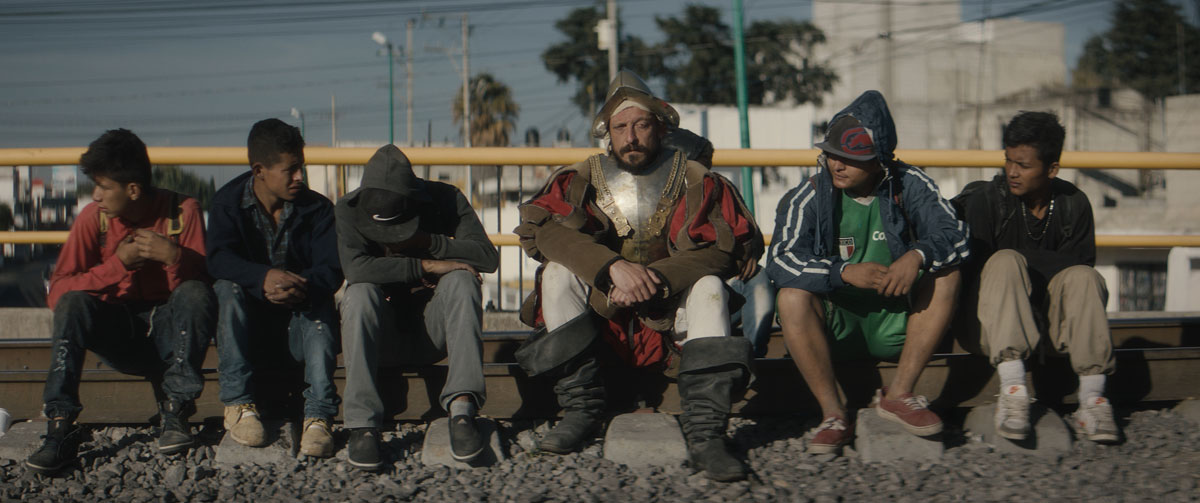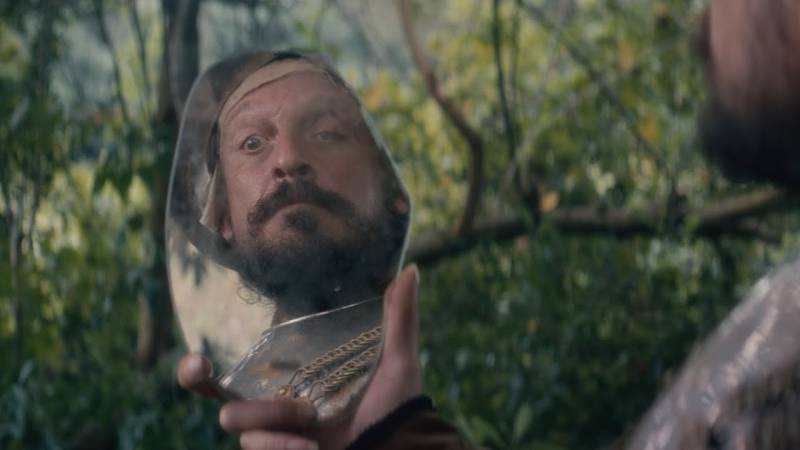If history is indeed written by the winners, why is Hernan Cortez so miserable?
For starters, Oakland-based director Rodrigo Reyes has yanked the 16th-century Spanish conquistador from his eternal rest and dropped him in the lapping water on a deserted Mexican coast. Making his way through picturesque dunes in his heavy boots and clothes, Cortez encounters pollution and culture shock.
Worse realizations await, as Cortez (a weary yet curious Eduardo San Juan Breña) sets out on a journey from Veracruz to Tenochtitlan (present-day Mexico City), retracing his steps half a millennium after he and his invading force conquered the Aztec Empire. Reyes presents Cortez—and us—with a litany of painful contemporary sagas ranging from the kidnapping and murder of a journalist to the legions of Latin Americans riding a hope, a prayer and a freight train through Mexico to El Norte. Confronted with the violence and “progress” that are his legacy, the colonial explorer has a crisis of conscience.

499 is at once an imaginative dreamscape and a harrowing travelogue that marries documentary and fiction to fascinating effect. While showing us our harsh, messy world through the eyes of an anachronistic figure, the film evokes the universal (and ludicrous) aspiration for immortality through a mix of horror, poetry and droll humor.
The big risk that Reyes runs is trivializing the real suffering of real people by incorporating their experiences in his grand conceit. (He originally intended for 499 to come out in 2020, on the eve of the 500th anniversary of Spain’s conquest of the Aztec Empire.) And there’s a hurdle that Reyes has to leap with viewers, by drawing a straight (or even wavy line) through five centuries of history.


